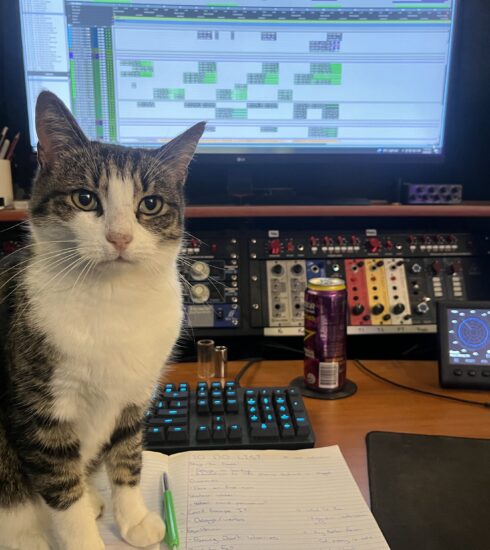A Forward Looking Retrospective with the VC Neil Quigley
Nexus: Starting with the big questions first. How would you rate the University’s response to COVID 19 as a whole?
Quigley: I think we did pretty well. What we did was hardly perfect. We went into COVID really not knowing what we were getting ourselves in for, which was true for the whole country. There was an awful lot of uncertainty. We made a few missteps I think, but on the whole we stayed focussed on what was important which was trying to ensure students could complete the work for the trimester and maintaining support for students who were trying to work from home and offline, as well as the staff who were trying to get papers up and running online. We did as well as we could have given the uncertainty at the time.
Nexus: Are there any lessons that you will take away and think “Shit we could have done this so much better?”
Quigley: One of our missteps was thinking, once we were up and running online, that we could just resume a normal schedule and recover one of the weeks we’d lost going into lockdown from the mid-semester break. We quickly learned that was not a good idea and had to circle back on that. In other areas we did well and some of the changes we made are likely to be enduring changes to the way we think about teaching and assessment at the University. For example, we quickly realised we wouldn’t be able to set traditional three hour exams as we always had. That forced us all to think about alternative means of assessment.
Nexus: Waikato seemingly had a more empathetic approach to those who had to leave the Halls than a number of other institutions. Do you think the likes of Victoria were wrong to continue to charge students?
Quigley: I think we made the right decision. It was reasonable for the University, given the scale of the institution, to bear the risk of the accommodation payments. But the context is a bit different in the sense that many of the other Universities have accommodation that is owned by other providers with whom the Universities have a kind of take or pay agreement. With that the University has to pay whether the students are in the Halls or not. With us, we own almost all of the built infrastructure for our Halls so we didn’t have to actually pay the cash out to a third party when we forgave the payments for accommodation during lockdown.
Nexus: How prepared were we for an online learning environment, given lecturers have been told to use Panopto for years?
Quigley: We have had a strategy for the last five years of trying to get an online instance of every first year paper across the University so we had some of the capability in place. But there’s no doubt a lot of what we did was emergency mode. Online teaching in the future is going to be about much more than video recordings of lecturers standing in a room reading their notes. It will be a much different way of teaching. We are working at trying to shift the whole mode to something that is genuinely a new way of thinking about teaching.
Nexus: Do you think it was a big adjustment for the staff?
Quigley: Very. The staff have worked incredibly hard this year. They have really been challenged. Not just the changes to the mode of teaching and technological hurdles, but also the sheer scale of the additional student requests for help.
Nexus: How do you think online learning compares to physical learning in terms of providing a valuable learning experience?
Quigley: I think that face to face learning is really important but I don’t think it has to be in the traditional format of large lectures of hundreds of students with one person speaking to them from the front. What we need to do is identify those areas where face to face teaching really adds value, which I think is in smaller groups rather than the large format lecture style.
Nexus: Does the University have a plan to address the likelihood of widespread cheating?
Quigley: Yes, we do. As much as we have to assist staff to operate in this new environment, we have to help students navigate this new reality. I think what it means is we will need to adapt our forms of assessment much more. If you ask a group of a hundred students the same question, they will talk to each other about the answer to that question. So what we’re going to need in future is going to need to be a lot more subtle. It will be more work and provide less scope for cooperation.
Nexus: There was talk about Otago requiring students to use a piece of software on their laptops for exams. Does the University have any plans to do anything like that?
Quigley: There is a whole world of that developing at the moment. People are working on technologies that use facial recognition or retinal scanning, that can track how much time you spend sitting at your computer, if you visited certain sites or communicated with other people during that time. So the future will be the development of those technologies but it will also be the development of assessments that are relatively immune to that sort of cooperation. In the future open book tests will be the norm. So the way we assess will have to change to accommodate that reality.
Nexus: The other week, the results of the commission into structural racism at the University came out. You subsequently released a video addressing the report. How were you feeling when you made that video?
Quigley: I was feeling pleased that the report came out with a clean result around specific allegations, but with a constructive way for us to get something positive out of all the discussions.
Nexus: Social media can be cruel.
Quigley: It was my first experience with social media in that way. It is interesting that people will say things when they are sitting at a keyboard that they would never say when they are sitting across a table from you like this. And without really realising how deeply hurtful some of those things could be. Especially for someone like me, I know I’m not perfect but I have spent forty years on my career, trying to be good at what I do and to have some people weigh in the way they did was difficult.
Nexus: The conclusions of the commission were overall fair, structural racism is an issue in institutions right across New Zealand.
Quigley: Structural racism is a part of the more general evolution of institutions that’s been going on forever. Universities have a long history, and we tend to only reflect back on the last 40 or so years. Before the second world war, Universities were quite different institutions and in another couple of decades they will be very different again. I am more than happy to embrace the idea that change has to occur. The specific issues around racism and the colonial structure we inherited with the British University System, those are really good challenges for us to look at and plan the evolution of the system.
Nexus: The next year will be fairly crucial.
Quigley: The next year will be crucial in developing a plan. Institutions do not change overnight. I look at some of the things I have tried to change around here and you can’t be in too big a hurry otherwise you get problems of a different sort arising. We do have some very specific issues to address. Some things will be able to happen very quickly while others will take more time.
Nexus: So there is a task force being established to find some solutions, what is within their remit?
Quigley: The task force has as broad a mandate as they want. We hope by Christmas that the breadth of investigation will have settled into some concrete areas where we can develop action plans. We need to go quite quickly from a high level discussion to some practical things that we can do; things that would represent fundamental change rather than token changes on the traditional ways of thinking about things.
Nexus: One of the things that seems like low hanging fruit, and was also part of the strategy document released by the University shortly after you started as VC, was short courses in tikanga and te reo Māori. What happened to those?
Quigley: We did try to offer some and the uptake wasn’t great. One of the things we realised was that probably letting people do that study at the Wananga was more sensible. We could try again, but we have had a few attempts and found the uptake wasn’t significant enough to sustain it.
Nexus: There has been some friction around folding the Faculty of Māori and Indigenous Studies into the divisional structure. Where does that stand now?
Quigley: The arrangement we came to with FMIS reporting to the Deputy VC Māori is what we agreed two or three years ago and is a perfectly reasonable arrangement. I see no reason to change that.
Nexus: Is there room for the University to be a national leader in this area?
Quigley: Definitely, and I think in some respects we already are. It is an interesting aspect of institutions and people that by having made more progress we have set a higher bar for ourselves. We are making progress and a lot of the leadership in this conversation has been here. And with the task force we have someone, in Linda Smith, as the co-chair who can provide leadership on this. Frequently there are these quite public conversations about the future and the politics of universities. I am not the first VC to have people criticise me in the public domain. Universities are the kind of institutions where people are going to raise difficult questions and want public debate about it.
Nexus: That raises all kinds of questions around the identity and function of a university in a society.
Yes, that’s right. The freedoms that academic staff at Universities have to pursue the ideas that they are interested in, and the academic freedom that is enshrined in the Education Act, is a huge thing. As we see institutions in other parts of the country, and the world, change we should recognise just how important the freedom to pursue those ideas is. Because of that we are going to be the sort of institutions where debate is led.
Nexus: This ties into the issues around staffing, for example the slated job cuts. Where do those stand now?
This is obviously a complex situation. With international students not allowed into the country we need fewer staff but ideally not in a way that means we cannot offer certain programs. But we will probably be offering fewer optional papers in those programs. Our aim is to reduce our costs where we can while still maintaining a sense of normality on campus. I hope the impact on students, as far as students would notice it, would be normal.
Nexus: Let’s move to the quick fire round. It’s voting season, what will you be voting for in the cannabis referendum?
Quigley: I am an economist, I will be voting to legalise and tax it.
Nexus: What about Euthanasia?
Quigley: I think the bill that is proposed is a sensible way forward for a really, really difficult issue so I am supportive of that.
Nexus: Are you a Bongo or Momento kind of bloke?
Quigley: I am a Bongo.
Nexus: What do you think of the renaming of Hamilton and its streets?
Quigley: Changing the name of the streets is fine. I don’t put any great store in the name Hamilton but if we were going to change the name it would be good to come up with a name that reflects the future and people’s aspirations. The Māori language is a wonderful language for being able to capture those complex ideas in the hands of really sophisticated users of te reo Māori. I understand the historical interest in Kirikiriroa but I think a different option with a different name that had meaning for the future would be a really interesting proposition.
Nexus: Book recommendations?
Quigley: I have just finished reading a new biography of Oscar Wilde. It’s a terrific read. I would recommend it to anybody. I like reading a biography that is firmly set in its historical context so it’s a combination biography and work of history.
Nexus: And a final question, what do you want to be remembered for?
Quigley: I’d like to be remembered for giving this University a greater sense of aspiration than it had when I came here. And for a sense of self belief in this university in taking on Auckland and Victoria and Massey and AUT in terms of our place on the national and international stage.




